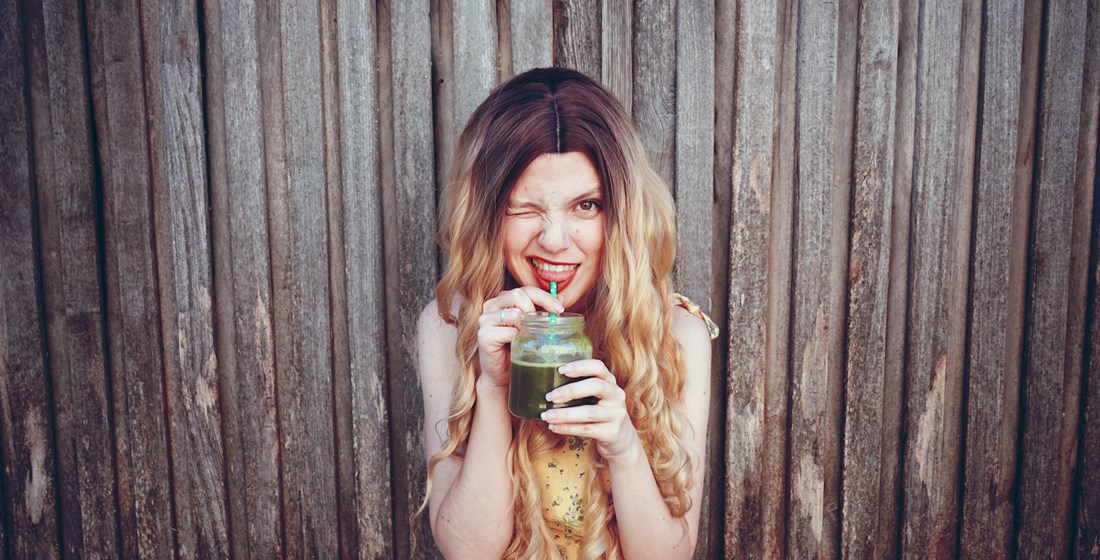How to do Veganuary
- 06th Jan 21

January is the beginning of the new year and also the start of Veganuary, a month where people aim to live a vegan lifestyle. Since 2014, the movement has supported more than one million people in 192 countries to go meat and dairy free.
A plant-based diet does not include any animal produce and being vegan can also mean not buying items made of animal products such as leather or make-up that has been tested on animals. There are many reasons why people choose to go vegan; an ethical argument against using animals, living a greener lifestyle because animal agriculture is responsible for greenhouse gas emissions and health, with the NHS saying that eating too much red or processed meat can increase risk of bowel cancer and heart disease.
Start slow
While the benefits, even for a short amount of time are clear, changing your diet can be challenging. Old habits are hard to break so instead of doing the whole month straight off, you could start by going meat-free for half the week. Our bodies need time to adapt to new sources of nutrients and by making slow changes, you may be more inclined to stick to them when Veganuary is over.
Find your reason
Whether you need to seriously make some health changes or just want a bit of a challenge in January, understanding the reason why you are opting for a vegan lifestyle is key to committing to the change. Your friends and family may not share your new views so it is important that you educate yourself and listen to experts so you can be sure of your own reasons.
Get planning
Weekly meal planners are useful for ensuring you have the right ingredients for vegan breakfast, lunch, dinner and snacks. It will help you to become more creative in the kitchen and give new things a try. If you are missing some of your old favourites, you can replace with vegan alternatives such as a lasagne with soya mince and plant milk for the béchamel or a vegetarian sausage sandwich. If you are ordering in or going out to eat, ask to look at the vegan menu before you visit so you aren’t tempted by your usual choices.
Get cooking
Being a vegan gives you pretty much the same access to junk food as non-vegans unless you focus on natural, whole foods. Of course, there’s nothing wrong with having some lazy days but be aware that you can still be a vegan and eat a diet that is too sugary and processed. There are lots of vegan alternatives with fake chicken nuggets, burgers, sausages and deserts and although it’s fine to indulge a little, it won’t do your health or waistline much good if you consume them every day. Instead, get yourself a few good vegan cookbooks or watch some recipe ideas on YouTube so you cook with fresh and natural ingredients.
Online community
If you are the only one in your friends and family group going vegan, it’s a good idea to join an online community to help keep you on track. There’s lots of people to follow on social media such as broadcaster Fearne Cotton, influencer Niomi Smart, Love Islander celebrity India Reynolds, YouTube’s Family Fizz, cooking duo BOSH! and reality TV star Lucy Watson. There’s also lots of community chat boards and forums where you can share ideas and talk about challenges.
Nutritional education
As you progress with a vegan lifestyle, you will learn more about nutrition. To start, ensure that you are not missing out on any vital sources by thinking about your iron, calcium, protein, healthy fats and vitamins.
Iron - non-heme iron is found in plants and as long as you are eating a good range, you will not be iron deficient. In fact, recent studies have shown that vegetarians don’t get anaemia due to lack of iron any more frequently than those who eat meat. Increase your vitamin C intake which helps your body absorb more of the iron.
Calcium – to replace rich in calcium dairy products, look for oat, soya or almond milks that are fortified with additional calcium to boost your nutrition. Other sources include green, leafy vegetables such as broccoli and cabbage, butternut squash, tofu, sesame seeds, tahini and pulses.
B12 – this is only naturally found in products such as milk and eggs so look for it in foods that are fortified in B12. Examples are in bread, breakfast cereals or by just taking a B12 supplement.
Protein – protein is in tofu, beans and lentils and the essential amino acids we need to live can be found in plant-based sources like soy, quinoa and potatoes.
Healthy fats – ensure you have enough omega-3 by turning to nuts, seeds and green vegetables.
Quick tips for a vegan lifestyle
- Supermarkets have lots of vegan products, often grouped together.
- Fast food is still an option with vegan products in many outlets such as KFC, Subway and Greggs.
- Eat the rainbow – create colourful plates to eat a diverse plant-based diet.
- Fill your cupboards, fridge and freezer with enough food so you can create interesting meals.
- Give your favourite dish a vegan twist.
- Don’t preach. Pushing your viewpoints on others can be irritating and will create more people to resist. The best way to inspire is to lead by your actions.
- Remember the benefits: maintaining a healthy weight, helping the planet, saving animals and saving money.
